Crises oubliées, urgence réelle !
« Il est essentiel qu’aucune crise humanitaire ne soit oubliée. Nous ne pouvons laisser des populations à la dérive, sans aucune aide… ». Il y a quelques semaines, l’ONU, par la voix de son porte-parole, tirait la sonnette d’alarme. Ce cri d’alerte est partagé par le Secours Islamique France (SIF) et ses équipes.
Conflits armés, catastrophes climatiques, crises économiques… Quand elles se déclenchent, ces crises occupent naturellement le devant de la scène médiatique, et attirent l’attention du grand public. Mais au fil du temps, les actualités se succèdent et prennent le pas les unes sur les autres.
Peu à peu, la couverture de ces crises humanitaires s’estompe, le nombre d'articles de presse et de reportage dans les médias radio et télévision baissent, et nombreuses sont celles qui passent au second plan ou tombent dans l’oubli. Pourtant, les souffrances de millions d’enfants, de femmes et d’hommes très fragilisés perdurent, voire même s’aggravent, dans l’ombre et le silence. Sur le terrain au quotidien, nos équipes en sont témoins, et demeurent très préoccupées par leur sort.
Sécheresse sans fin en Somalie, guerre au Yémen, effondrement économique au Liban, grave insécurité alimentaire à Madagascar, au Tchad ou encore instabilité sécuritaire et pauvreté au Mali… Face à ces crises humanitaires oubliées, le SIF agit avec le soutien des donatrices et des donateurs :
- Par des réponses d’urgence, destinées à aider les populations à subvenir à leurs besoins essentiels : distributions de colis alimentaires, d’eau potable, de kits d’hygiène, mise à l’abri...
- Par des projets sur le long terme, pour leur redonner des perspectives d’avenir : accès durable à l’eau et à l’assainissement, développement des moyens d’existence (agriculture, élevage, formations, activités génératrices de revenus), éducation, protection et bien-être de l’enfance...
- Par des constructions ou réhabilitations de bâtiments, de routes, de logements, d’écoles, de centres de santé…
- Par la mise en place de plans d’actions pour faciliter l’anticipation des crises et leur gestion par les populations locales.
Face à la multiplication des crises et leur complexité, le SIF reste déterminé à maintenir et renforcer ses projets, tout en développant de nouvelles actions. Pour être en mesure de le faire, nous avons besoin de vous !

Comme ici au Mali, le SIF intervient partout où les besoins l'exigent, et notamment en réponse à des crises humanitaires oubliées, tant elles durent depuis longtemps
"FORGOTTEN CRISES, A REAL EMERGENCY!"
Yemen : On the verge of famine
More than eight years of war have had disastrous consequences. The economy is on its knees, 17 million people* are food insecure, 5 million of whom are at risk of famine, the deadly stage of starvation: the humanitarian crisis in Yemen is considered to be one of the worst in the world, exacerbated by frequent climatic disasters.
"Entire families have fled the conflict zones in search of safety. They have no shelter/roof over their heads, no resources, no prospects, no means of existence. Humanitarian aid is vital!"
Aurangzaib K., SIF Head of Mission
(*) Source: World Food Programme (WFP).

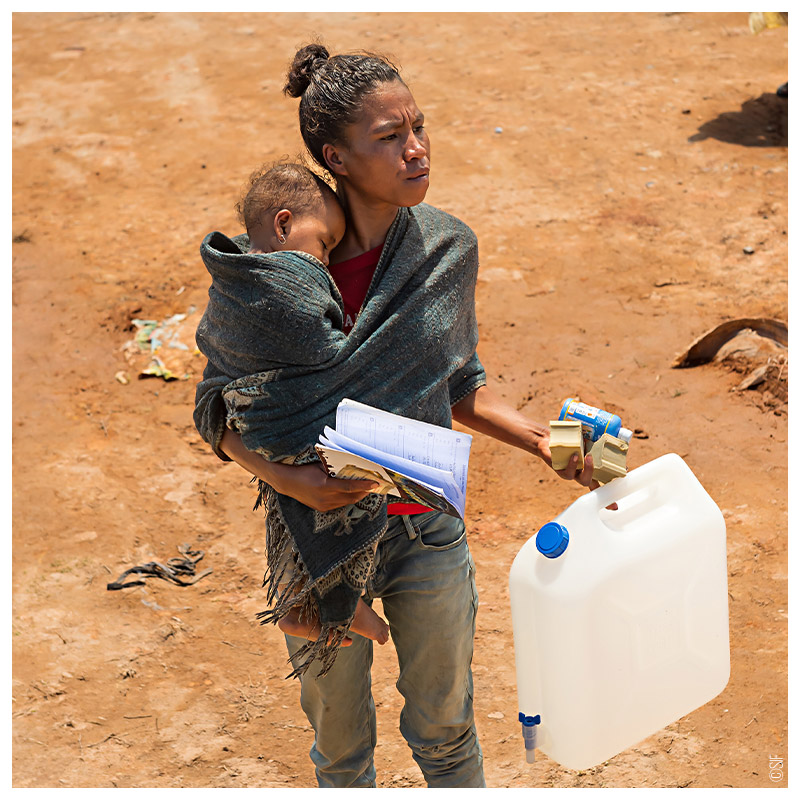
Madagascar : The disaster of climate change
Droughts, floods, cyclones... Climatic disasters are becoming increasingly frequent in Madagascar, a country where food insecurity affects nearly 8 million people*. And the situation is getting worse. In February, the cyclone Freddy ravaged farmland.
"Madagascar is in the middle of a hunger crisis. Because of the cyclone, agriculture production has dramaticaly decreased. Foodstuffs are very rare, and therefore very expensive, unaffordable for the poorest people. As for the economic situation, it's catastrophic!"
Aliou W., programs coordinator
(*) Source : UN
Mali : Facing a security and climate crisis
In this Sahelian African country, the consequences of the unstable security situation and recurring droughts are dramatic. Civilians are the first to be affected: forced displacement, loss of income, agriculture and livestock at a standstill, food insecurity... One person over three in Mali needs humanitarian aid*!
"Between May and September, Mali is in the lean season: previous harvests have been exhausted, and food security depends on the next ones, which are already very weak due to conflict and drought. The population is idle, and the SIF is very worried".
Alexis P., Africa-Haiti Desk Manager
(*) Source: UNHCR, the United Nations High Commissioner for Refugees.
Links :
- Sahel youth survey (full report)
- Summary report: Survey analysis: young Sahelians have their say
- Conference proceedings
- Note: Overcoming the internal displacement cris

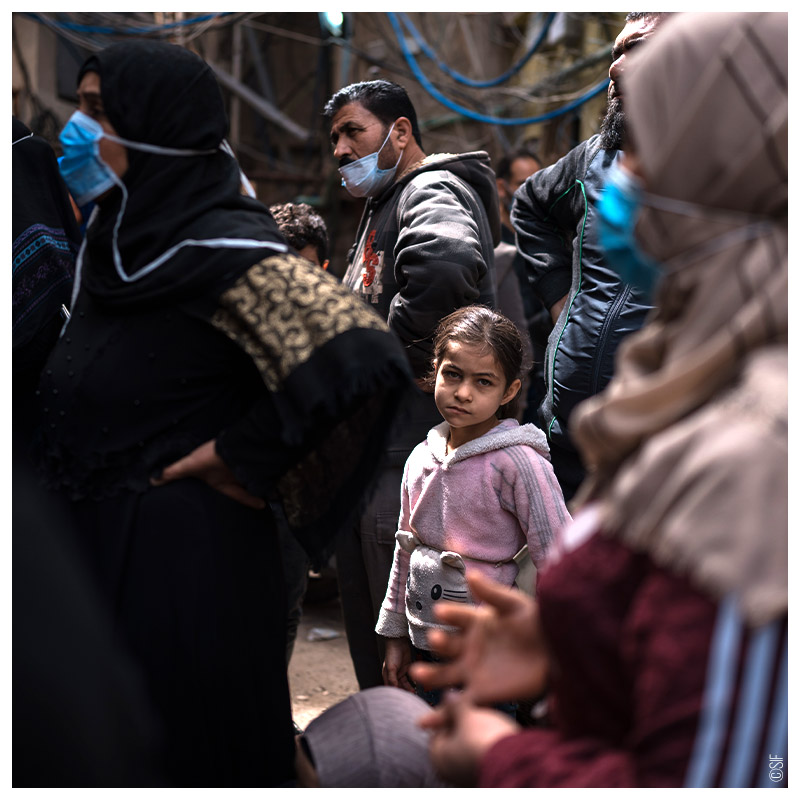
Lebanon : A never-ending economic crisis
Sudan: The chaos of war
Since April 15, armed conflict has claimed at least 2,000 civilian lives*. In the face of danger, more than 1.9 million Sudanese have been forced to flee within the country itself, or abroad, mainly to neighboring countries such as Chad, where SIF has intervened for Sudanese refugees. These people survive in overcrowded camps, deprived of everything.
"The rainy season is approaching, and the risk of flooding is very high. Many people are homeless and therefore at risk. The probability of epidemics and water-borne diseases is huge. The current crisis is extremely alarming!"
Déziré M., Emergency Response Coordinator
(*) Source: UNHCR.
- Note: Overcoming the internal displacement cris
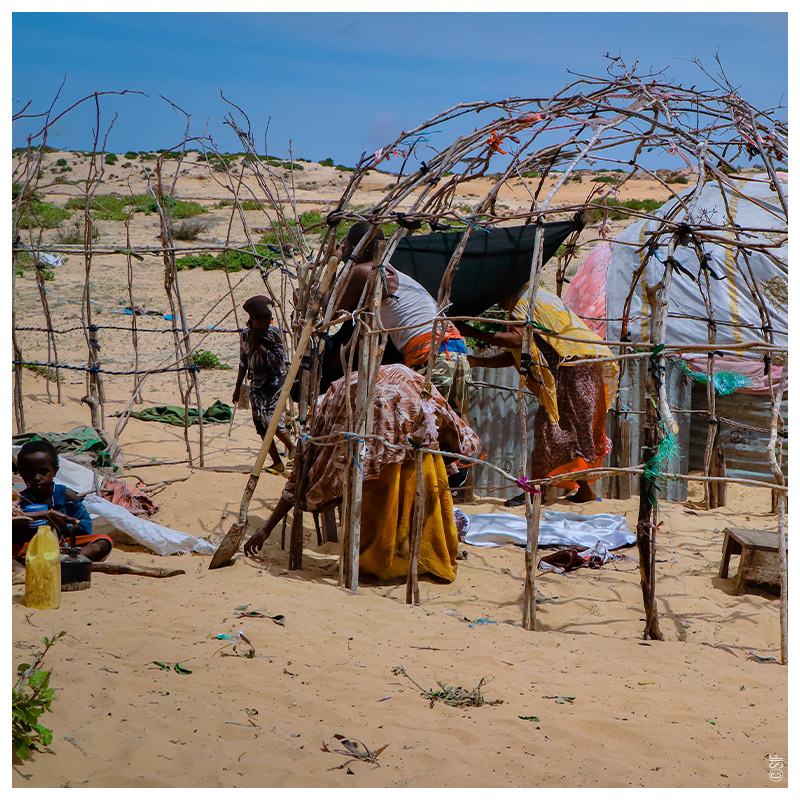
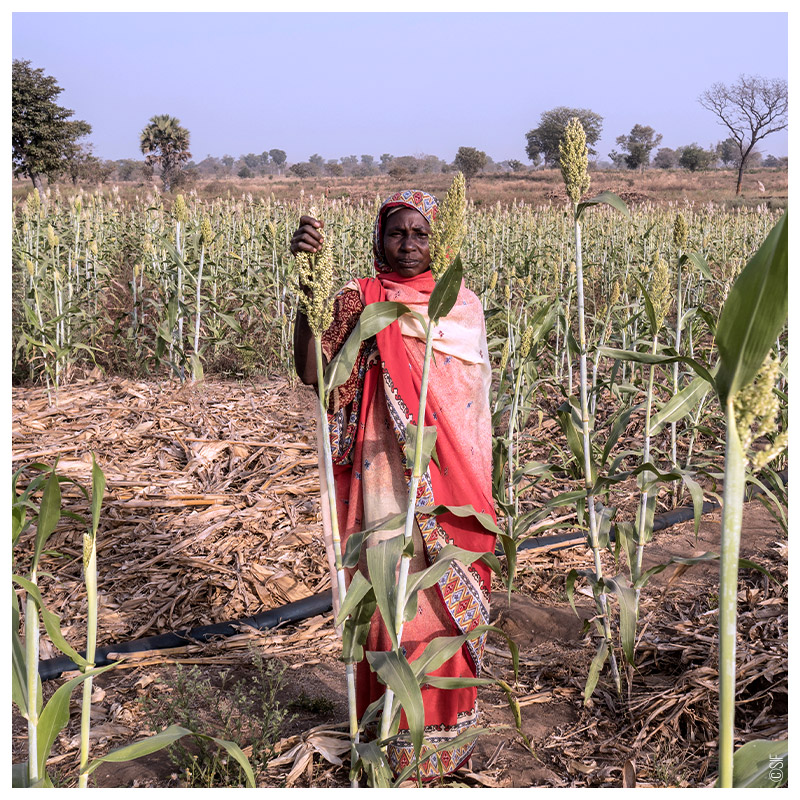
Chad: Climate crisis and food scarcity
In this Central African country, at least 6.9 million people are in need of humanitarian aid, i.e. 39% of the population*. In 2022, the worst floods in Chad's history, linked to climate change, destroyed or severely damaged two-thirds of the country's agricultural land. On the ground, food shortages are widespread.
"Poverty has become the norm, the needs are immense, and we fear the worst for the futur: like previous years, forecasts point to massive flooding once again. The humanitarian crisis is real..."
Alexis P., Africa-Haiti Desk Manager
Somalia : The worst famine in 40 years
In 2022 in Somalia, one of the most vulnerable countries to climate change, at least 43,000* people have died because of the drought, and the lives of 34,000 others* are at risk. In total, more than half the population is at risk of hunger and 750,000 Somalis have been displaced as they struggle to survive!
"The loss of human life due to the drought is very high. Children are particularly affected by acute malnutrition! Because agriculture is the main source of income and supplies for the local population, the shortage or total absence of agricultural production is leading to food insecurity. People are left with no income and no food".
Daniel E., project coordinator
(*) Source: WHO.
- Note: Overcoming the internal displacement cris

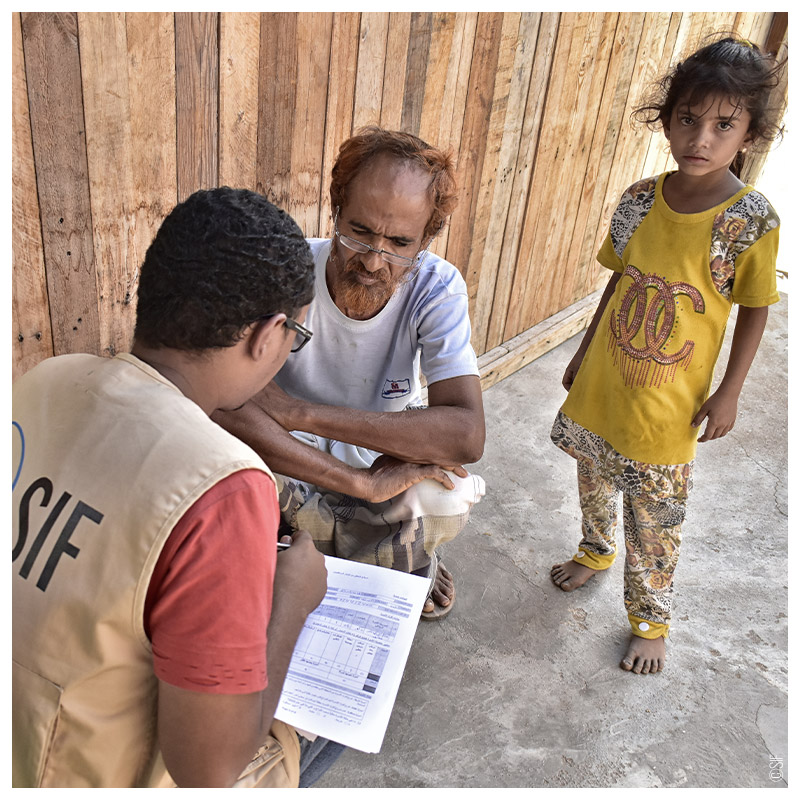
Iraq : The repercussions of a devastating conflict
Outbreaks of violence, economic and social crisis... In Iraq, time goes by, but the problems remain: 2.45 million people are in need of humanitarian aid, including more than 1 million internally displaced persons. Overall, more than one in four Iraqis live below the poverty line! Another threat is climate change, with the effects of drought becoming increasingly serious/severe.
"Funding and donations for humanitarian aid are lacking, even though the needs remain immense. For example, many children are still traumatised by the war. Some do not even have birth certificates and have no access to basic rights. They need support! Overall, the country is in crisis at every level, food security is fragile and livelihoods are scarce...".
Anna E.-P., Project Officer
Office for the Middle East and Asia
(*) Source: OCHA.
- Note: Overcoming the internal displacement cris
